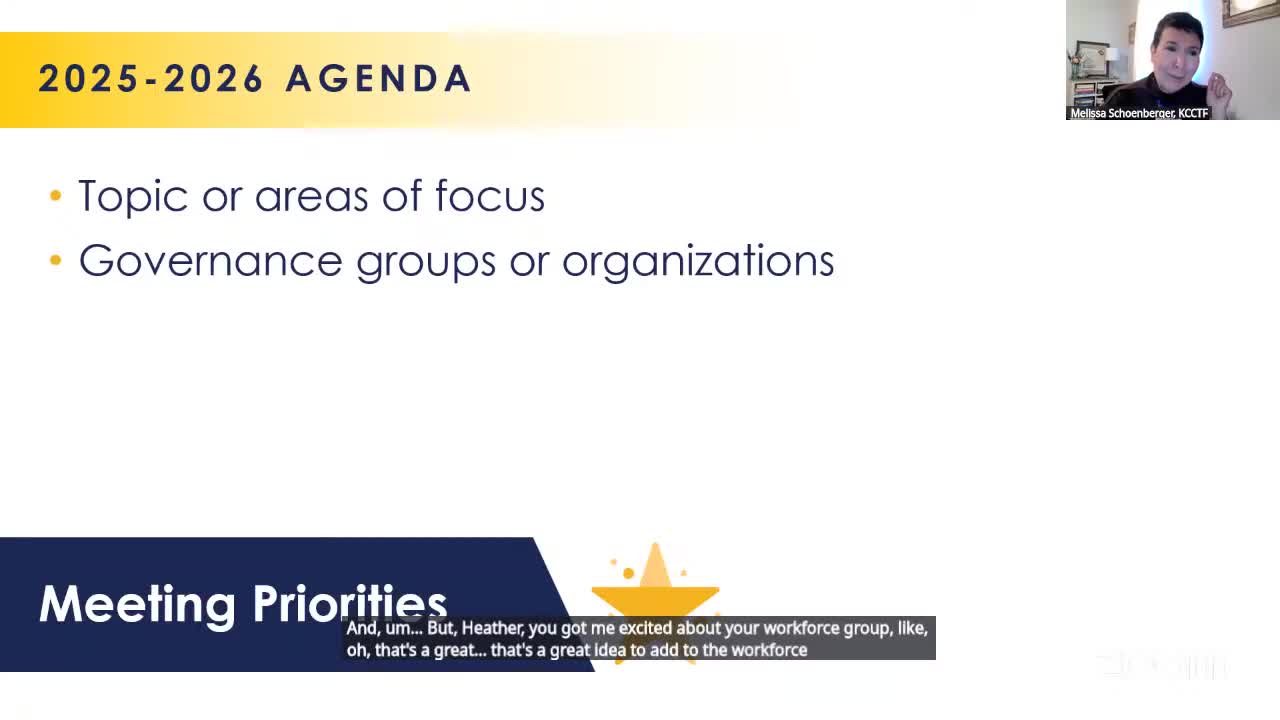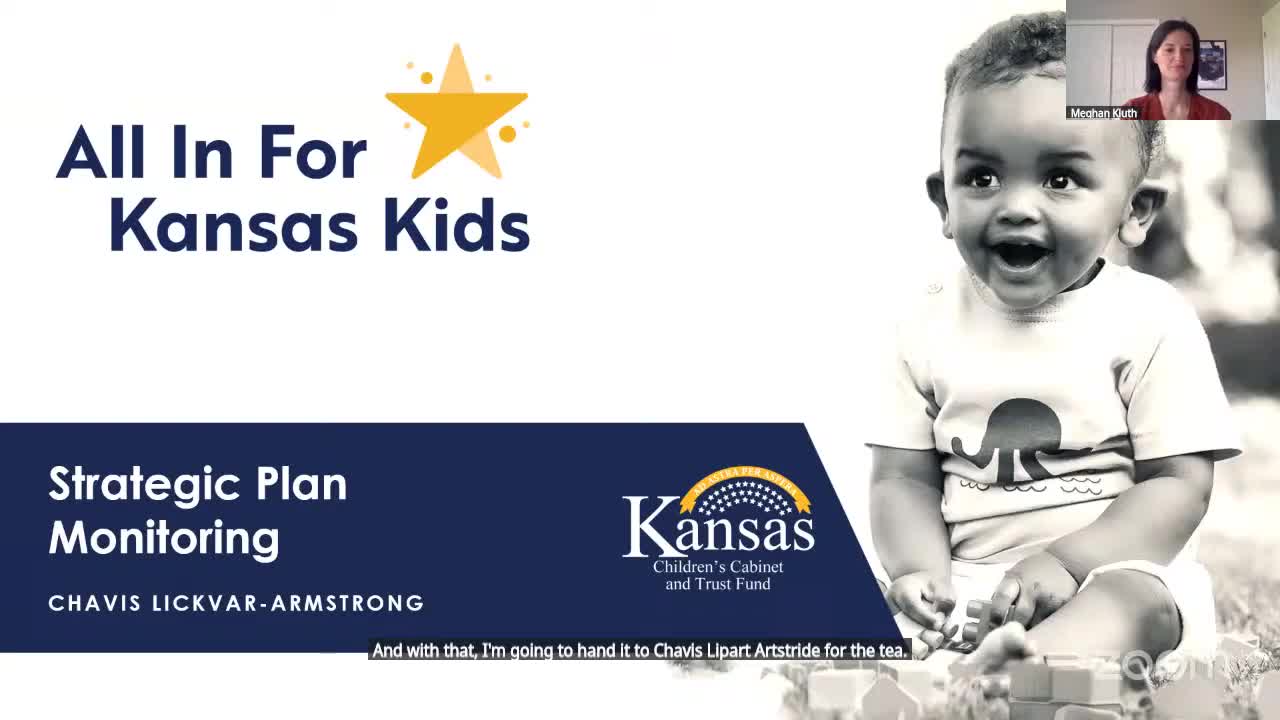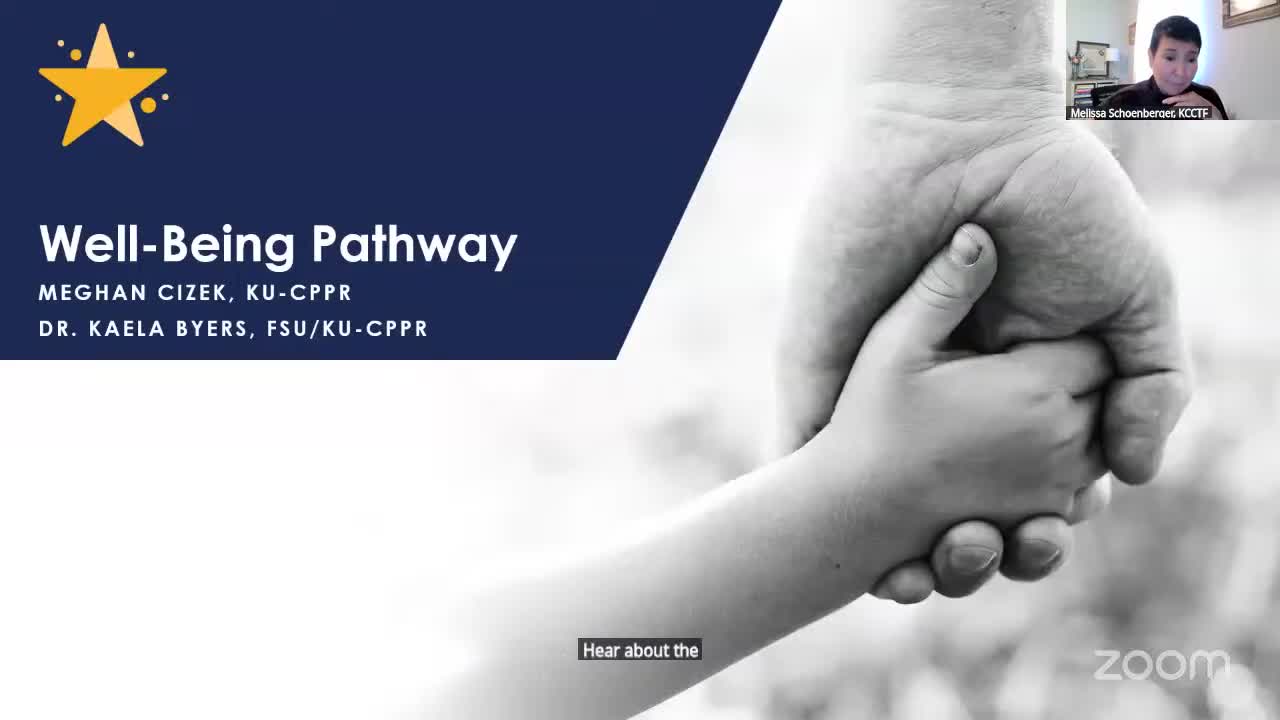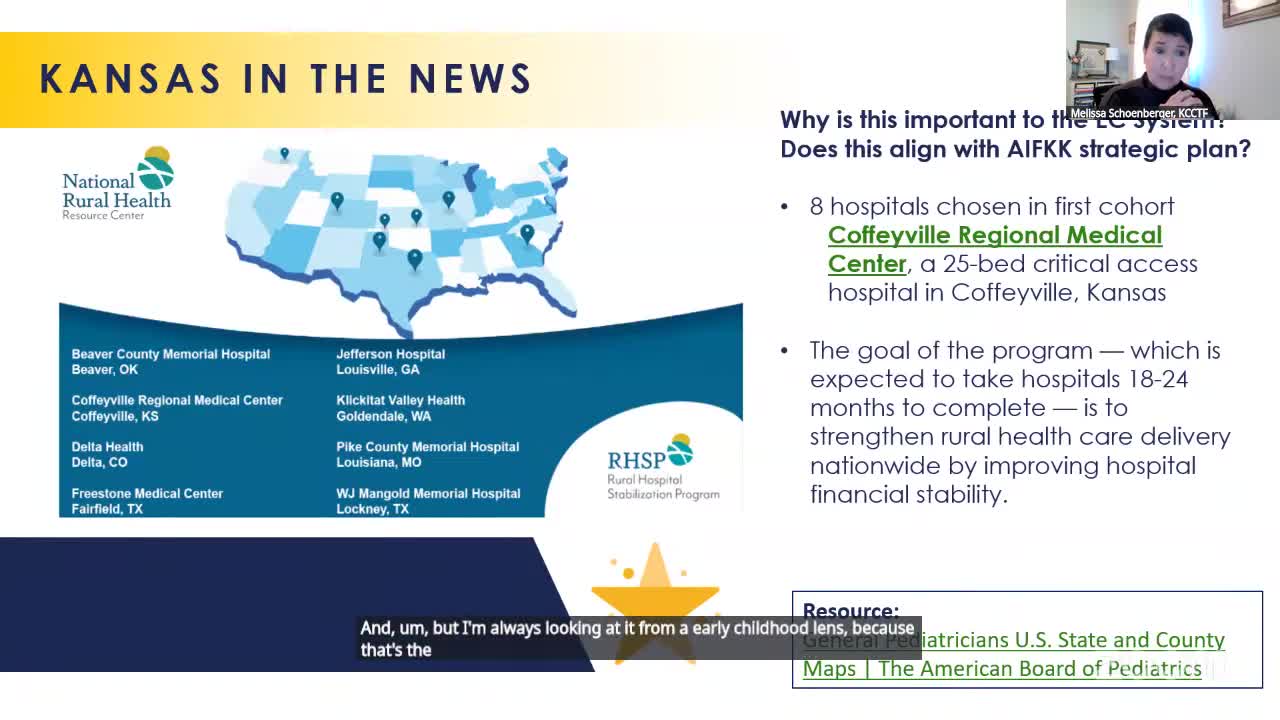Article not found
This article is no longer available. But don't worry—we've gathered other articles that discuss the same topic.

Panel reviews work groups: family‑friendly workplaces, workforce recruitment and early childhood mental health

Panel told a dashboard is coming to measure progress on All In for Kansas Kids strategic plan

Panel preview: new county‑level ‘well‑being pathway’ tool to highlight local strengths and bright spots

